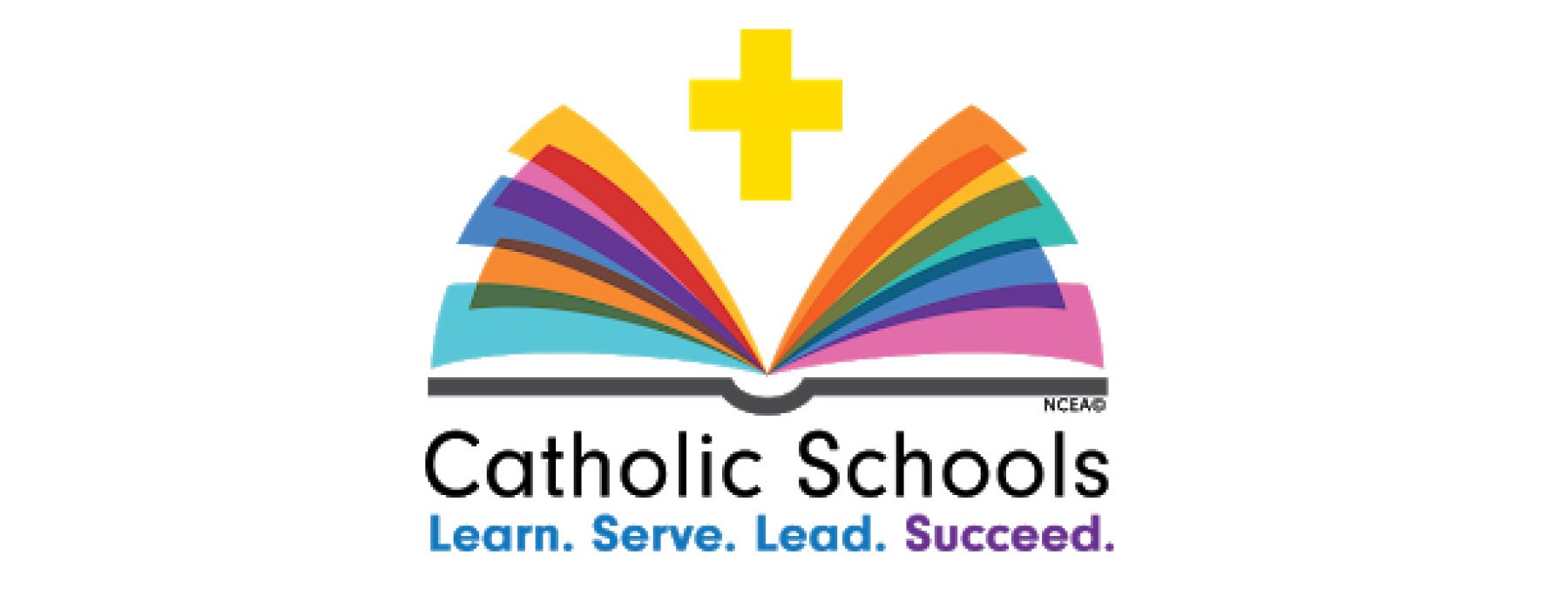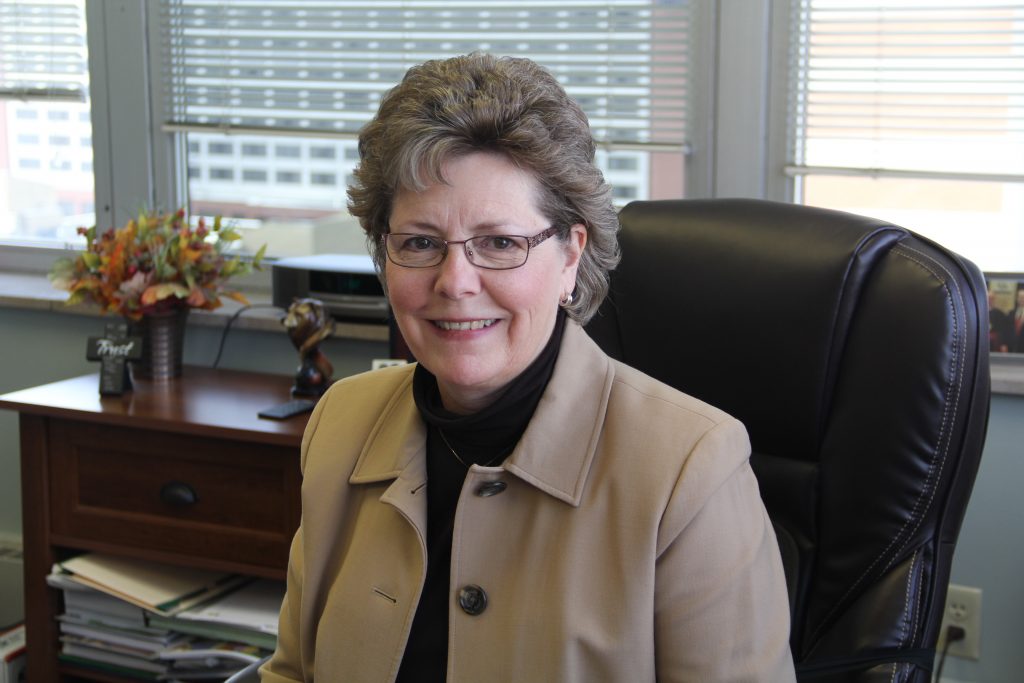January 22, 2019 // Diocese
Educational excellence with Christ at the center
By Marsha Jordan, superintendent of Catholic Schools for the Diocese of Fort Wayne-South Bend
I began my career in 1973 as a Catholic school teacher in the diocese — and in 2019, after subtracting six years as a stay-at-home mom, mark the completion of 40 years as a diocesan educator in a variety of capacities. As I look back on my career, I see many similarities and many differences in diocesan schools and teachers, and the issues and events that affect them.
A review of historical data in “Worthy of the Gospel of Christ,” written by Joseph M. White, states that in 1976 there were 46 grade schools educating 12,240 students. The teaching staffs consisted of 161 sisters and 318 lay teachers. In addition, there were five high schools educating 3,811 students taught by 21 priests, 23 sisters, 17 brothers and 154 lay teachers. A recent statistical survey by the diocese, as submitted to the National Catholic Educational Association, showed 39 elementary schools with 10,464 students and 769 teachers (full- and part-time), including four religious sisters. Currently there are four high schools with 3,062 students and 232 full- and part-time teachers, including one female religious. Classes in 1973, particularly in the elementary schools, tended to be double the size of those today, partly accounting for the difference in the number of teachers employed in 1976 compared with today. Other reasons include a more robust design of curriculum and programming because of accreditation requirements today.
Msgr. J. William Lester served as superintendent through 1970. As noted in “Worthy of the Gospel of Christ,” the focus then and throughout the 1970s was a firm and persistent emphasis on upgrading the professional preparation and status of teachers, lowering class sizes and improving the salary scale and insurance benefits provided to teachers along with curriculum changes and evaluation outcomes. Today, with the exception of lowering class sizes, the same issues are a constant focus within the administration of our schools and school system. The goal is always to respond to current needs and challenges, and to become better tomorrow than we are today.
Catholic Schools Week 2019 again provides the opportunity to celebrate all that is good about Catholic schools — the work of teachers, administrators and students; the daily experiences of faith and sacraments; the outstanding academics, arts and athletics; and the family atmosphere that nurtures the schools. Maintaining a standard of excellence requires that we constantly evaluate programs and purpose, while always keeping Christ at the center of our schools as a means of continuing His mission of proclaiming the Gospel. This mission is vital to the future of our young people, our nation and especially our Church.
 In a homily given to teachers and administrators, Bishop Kevin C. Rhoades stated: “Our Catholic schools exist to call our children and young people to greatness, this greatness of soul, to use their God-given gifts to do what is great in God’s eyes — to serve, to help, to give and to build up the body of Christ. A great school is one that encourages and strives for excellence. It doesn’t just try to get by. And it isn’t seeking the mere prestige of the world. A great Catholic school pursues academic excellence, to be sure, but first and foremost it seeks the greatness of Christ, the magnanimity of the Beatitudes, the courage of the cross. These pursuits, academic and spiritual, go hand in hand. For when we pursue academic excellence, we do so knowing that reason and intelligence, like faith, are gifts that God gives us to be used. In the light of our faith, we also know what true greatness is. We must strive for greatness in our lives and in our schools, seek to grow in goodness and virtue, and not be satisfied with the minimum, with mediocrity or the status quo. We must be committed to excellence, to growth, working together to make our schools the best they can be, everything aimed at building up the body of Christ and growing to the full stature of Christ.”
In a homily given to teachers and administrators, Bishop Kevin C. Rhoades stated: “Our Catholic schools exist to call our children and young people to greatness, this greatness of soul, to use their God-given gifts to do what is great in God’s eyes — to serve, to help, to give and to build up the body of Christ. A great school is one that encourages and strives for excellence. It doesn’t just try to get by. And it isn’t seeking the mere prestige of the world. A great Catholic school pursues academic excellence, to be sure, but first and foremost it seeks the greatness of Christ, the magnanimity of the Beatitudes, the courage of the cross. These pursuits, academic and spiritual, go hand in hand. For when we pursue academic excellence, we do so knowing that reason and intelligence, like faith, are gifts that God gives us to be used. In the light of our faith, we also know what true greatness is. We must strive for greatness in our lives and in our schools, seek to grow in goodness and virtue, and not be satisfied with the minimum, with mediocrity or the status quo. We must be committed to excellence, to growth, working together to make our schools the best they can be, everything aimed at building up the body of Christ and growing to the full stature of Christ.”
In my 40 years as an educator, I have been privileged to walk daily with hundreds of other diocesan teachers. As I reflect on these relationships, one constant, regardless of the era or issues affecting schools, has been the unwavering devotion of teachers to providing a mission-focused Catholic education, first and foremost, while striving for excellence each day and working together collegially to building up the body of Christ. Teaching in a Catholic school is a vocation, a calling to become something of great significance — in this case, to share in the Church’s mission. Jonathan Doyle writes in his book “Tools & Fuels” that Catholic school teachers are called by God to a vocation that is so important in helping to form saints that only through a total dependence on His help can we accomplish what He wants of us in our vocation. As a 22-year-old new teacher in 1973, I turned down a position in a public school system, opting instead for a parochial school. I am not sure that at the time I knew this to be my “vocation,” but God did. I am certain that God chooses us for this vocation and that the Holy Spirit draws out the gifts we have so that we can fulfill His plan for us.
Recently, while filling in as principal in one of our elementary schools, a fifth-grade teacher shared with me a flip book of writing that a student had just presented to her. Perhaps the young man had the song “On Eagle’s Wings” in mind when he created it; I don’t know. His words to her in his creation were: “The fire eagle represents the fire in your heart to make us to be the best person we can be; the electric eagle represents the speed in your legs when you come and help me; the water eagle represents the water in my eyes when I don’t get the assignment and you come and help me get over it. Thank you.” Touching her heart with her hand, she said, “This is why I do what I do!” The reward of sharing the faith, challenging students to grow in holiness and working with them to be the best they can be is powerful and compelling; it is an affirmation of one’s vocation.
The theme for Catholic Schools Week is “Learn. Serve. Lead. Succeed.” During this special week, we invite parish communities to pray daily for our schools. We especially ask that you pray for teachers and staff members who daily witness and proclaim the Gospel to our students — those who learn, serve, lead and succeed. These men and women truly are, in the words of St. John Paul II, “great gifts to the Church.”
Pray also for our predecessors, priests and laypeople, who established the firm foundation of Catholic schools in our diocese. What a tremendous treasure they have given us! Inspired by their example, may we continue to strive for greatness in all areas of our Catholic schools so as to continue to build up the body of Christ.
Marsha Jordan is the superintendent of Catholic schools for the Diocese of Fort Wayne-South Bend.
The best news. Delivered to your inbox.
Subscribe to our mailing list today.







